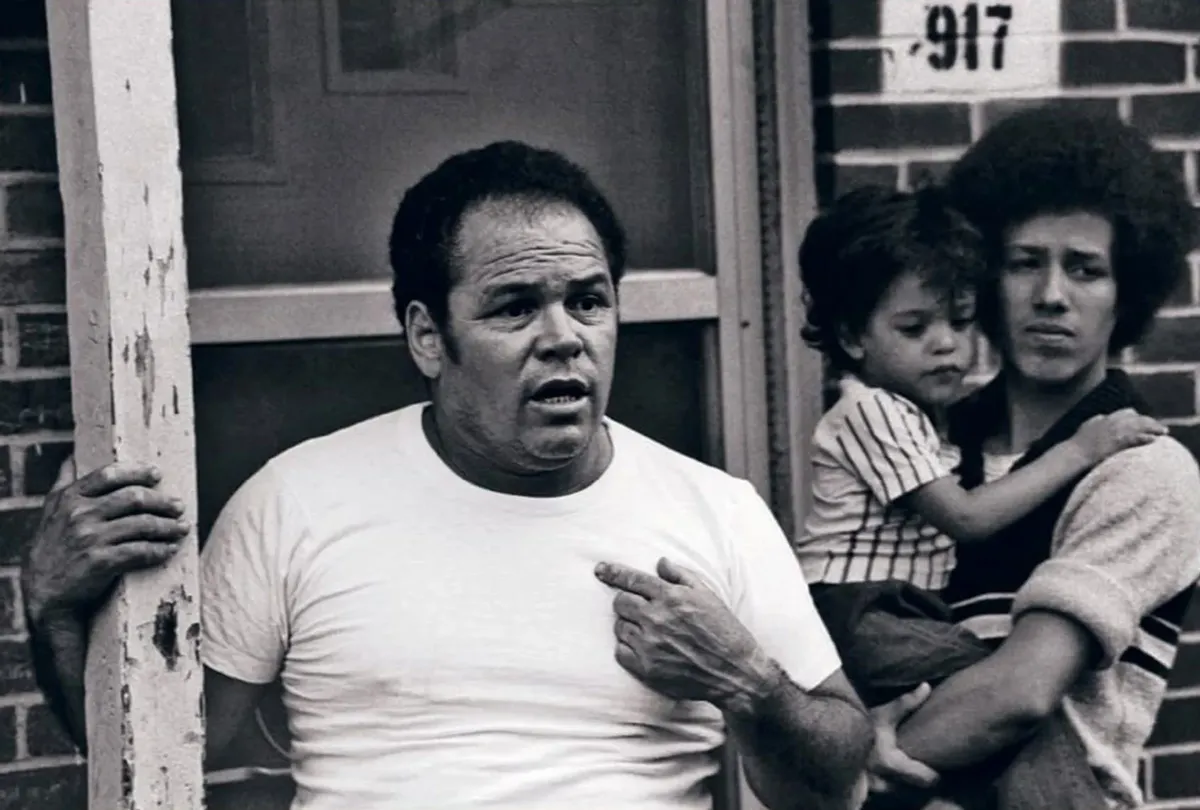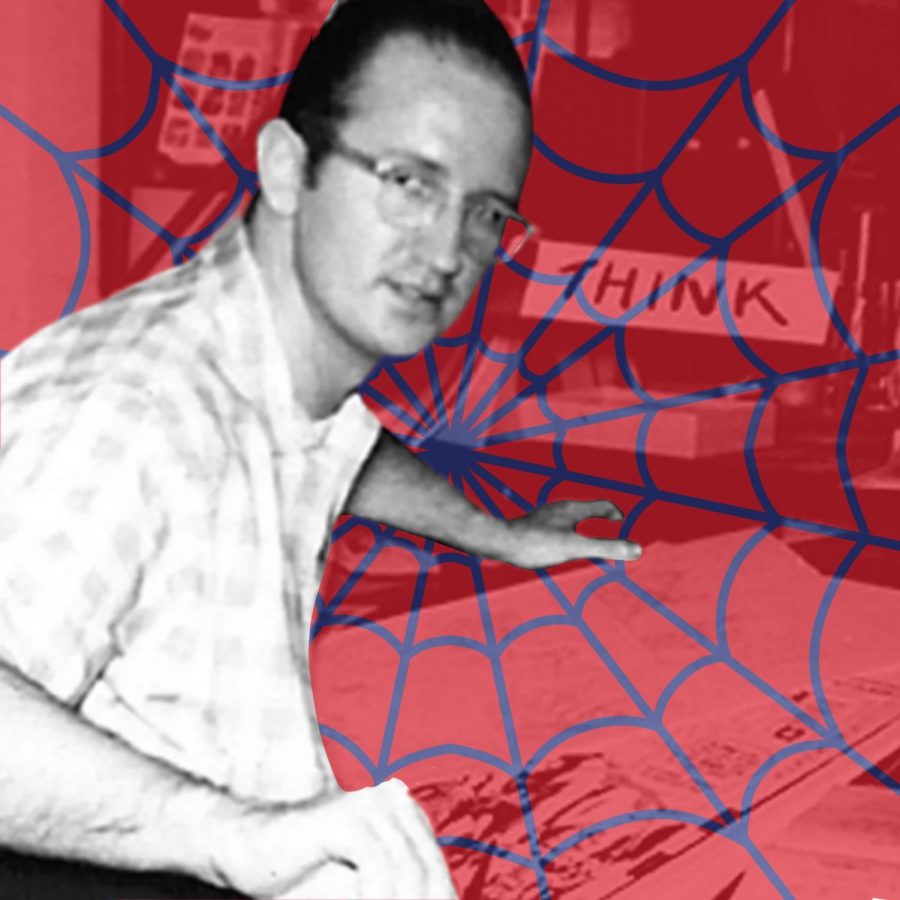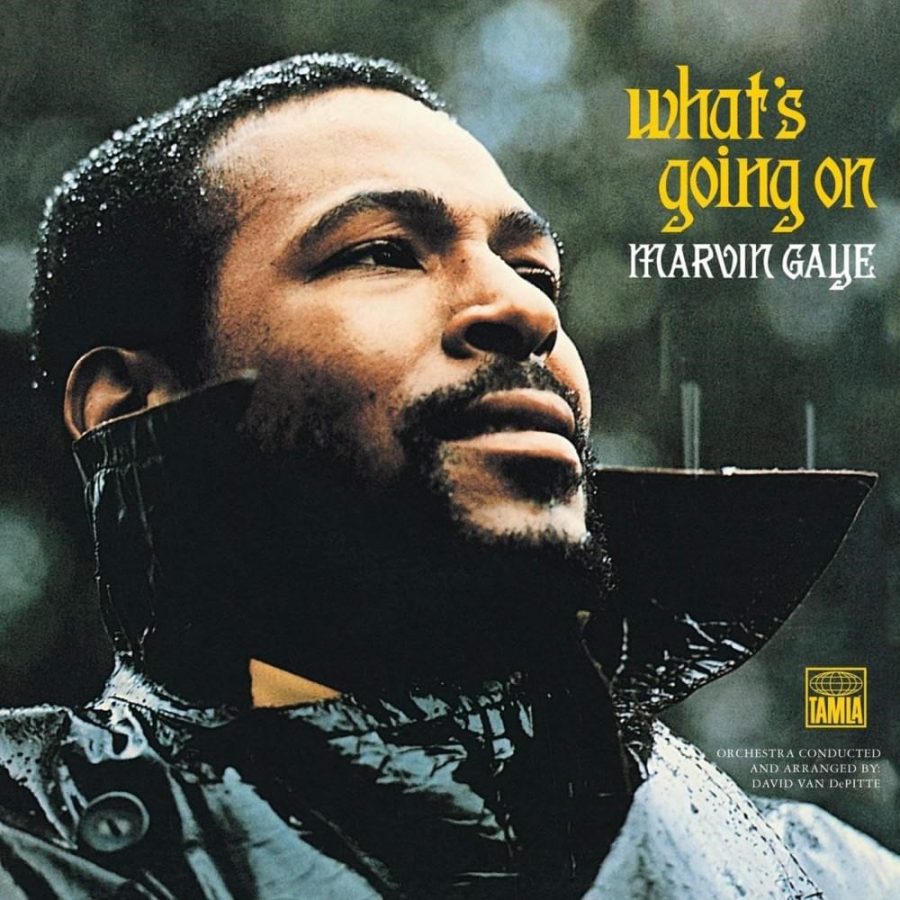In “Letter to My Father”, Martin Espada uses a description of Hurricane Maria’s aftermath in Puerto Rico as a representation of his father’s experiences.
The speaker of the poem is Martin Espada, and the subject is his father and Puerto Rico. Specifically, he explores his own relationship with his father, the effects of the 2017 disaster on Puerto Rico and, through the allegory of the storm, his own father’s experiences with migration. Espada’s attitude throughout the poem is highly dependent on the subject, as varied as mourning a loss of innocence (“I want you to be God again”) and the flourishing and poignant description of Puerto Rico in the third stanza.
The poem is a rhetorical open letter to his father. This is not intended as an actual letter to his father, as he admits that his dead father is “not watching” him write the letter. Instead, Espada published the poem openly in order to contribute his own insight and emotions to the world.
As the description of his relationship with his father is a frame story for the destruction of Puerto Rico, there are several shifts in the subject area that Espada is addressing. In the first stanza, our poet reflects on his father in the current day, before transitioning to describing an anecdote about his father from his perspective as a child in the second stanza. While starting and ending the third stanza with a connection to his boyhood and father, the majority of the stanza is focused on describing Puerto Rico’s beauty, and Martin Espada’s connection to it. The fourth stanza continues with the description of Puerto Rico introduced at the end of the previous stanza, before describing how that description was changed by the effect of the hurricane. The focus on the hurricane’s damages lasts throughout the fourth and fifth stanzas, with the former more focused on the harms to Utuado, Espada’s traditional hometown, and the land of Puerto Rico, and the latter on Puerto Rico as a whole. Seizing off of a quote from his father in the fifth stanza (“I heard somebody ask you once”), the final two stanzas return to Espada’s modern-day ruminations about his father.
While much of the poem describes Puerto Rico, that part is encompassed by a frame story that sets the theme of the entire poem. Starting with the title “Letter to My father”, we can see how Espada uses paratextual clues to suggest his focus on his connection to his father. Martin may describe some things explicitly, such as how his father was cremated instead of buried (“My reward for this life will be a thousand pounds of dirt shoveled in my face. You were wrong. You are seven pounds of ashes in a box”) or how his father taught him that “there is no God”. However, the most important information is suggested rather than outright told. One example is how Martin reports that his father is “next to a red brick from the house in Utuado”, setting up an association between what happens to Utuado and his father. The symbol of the father’s explanation of “there is no God” at the same time as describing how his father himself has gone foreshadows future explanation of how he viewed his father as a God (Line 1, Stanza 2; Line 1, Stanza 3), which then strengthens that connection. While the anecdote of his father’s influence may be literal (although the “public execution” part is not), its implications for the poem are largely figurative. It sets up his father as a figure with influence and a strong sense of justice and aversion to violence. In the third stanza, Espada describes his father’s anecdote about “good fortune” in order to create a sense of irony when viewing the later destruction of Utuado. Martin also reports his father as “do[ing] it” through the beauty of Puerto Rico, represented by “the mountains”. This sets up a later connection of the ruin of Martin’s dad, represented by the devastation of Puerto Rico. In the final stanzas of the poem, Espada returns to processing his grief for the loss of his father. While acknowledging his father’s lack of godhood, (“I know you are not God. I have the proof”) Martin still expresses a desire for his father to be “God again”, for him to “seize the president’s arm”, “thunder Spanish obscenities in his face” and “banish him..till there is nothing left”, protecting the Puerto Rican community. Despite his call for a return of his father, Martin suggests that this is more for his community than himself as his father was “deaf” to Martin’s words “even before [he] died”. Our poet admits that he would try to process his grief differently (“I promised myself I would stop talking to you”), and yet continues with a promise to his father: to scatter him back in his birthplace of Utuado and favorite place of the mountains. While his father, like many in Utuado, have passed on, “buried” by the mud that represents death and destruction, the description of new houses who “rise blue and yellow from the mud” ends the poem with a note of survival and hope.
While the poem’s focus is on Espada’s father, the framed story does advance several arguments about the ruin of Puerto Rico itself. The sacred mountains of Espada’s father, described as “bedridden” “sisters”, are “gutted” by a hurricane, which through simile is personified as a “butcher”. A man, who encultures his American nieces, decides to end his life as his native “aguacate and carambola” were beheaded. This represents the loss of the man’s culture, as the natural Spanish names are forcibly translated into the English “avocado and star fruit”. This cruelty is epitomized in the description of the island as “soldiers of a beaten army” who were “beheaded”. The violence is exceptional because of its lack of purpose: its sole object is to terrify the island through the display of gratuitous violence (Source 1). This exceptional violence leads to two responses by the Puerto Ricans. First, in response to the destruction of a vital bridge (Source 2), the community works together with “many hands” to build an improvised pulley system to move essential staples. Second, to protest the lack of aid, the community comes together “with many hands” to raise “a sign” towards the helicopters of the media: “Campamento los Olvidados”. This message is translated into the “Camp of the Forgotten” in order to have the greatest media impact. This shows how minoritized groups can react to violence through developing communities that can agitate to both mitigate past violence and work for social change that can foretell future violence. In addition to ascribing autonomy to Puerto Ricans, this latter half of the stanza also sets up the theme of Puerto Rico as “forgotten”. There is a contradiction in American policy: Puerto Rico is American enough that laws, taxes and sovereignty are enforced, but not “civilized” enough to get proper disaster aid, entitlement programs (Source 3), and voting rights for federal representation. This concern has been recognized for over a century, the injustice of keeping Puerto Rico “like a disembodied shade, in an intermediate state of ambiguous existence for an indefinite period… irrespective of constitutional provisions” (Source 4) recognized across time (idem.). and political leanings (Source 5).
As we move into the next stanza, the theme of people left behind to American colonization continues, with the government aid being an empty “meal of Skittles and Vienna sausage” that has the appearance of government aid, while really being a process of Americanization without any real substance. The otherization through supposed aid continues, as a nurse calls the Puerto Rican “these people” instead of our people; or how the Puerto Ricans “are going to have an epidemic…going to die” as an almost Malthusian essence rather than a political choice to not invest in Puerto Rico’s health. And, the purely performative aid continues, with the “delusions” of the president as he “flips rolls of paper towels to a crowd”. The hurricane, continually personified as it “spits” down at the island, is now “lobbying thunderbolts” as reality confronts “the locked ward” of Trump’s absolute confidence in his ultranationalist agenda of palingenesis. Just like the last stanza, this one now moves to the topic of resistance, setting up a transition to the final two stanzas with a quote from Espada’s father. While Puerto Rico needed “tres pulgadas de sangre en la calle”, “three inches of blood in the street”, instead it got the suffocation of “three inches of mud flow” from the hurricane, which only serves to strengthen the power of colonial systems on the island. We can see American colonialism and indifference in the response of the troops, which guard “the vein of copper” as if “a shovel digging graves in the backyard might strike the ore”, where the importance of property rights that enable resource extraction from the periphery are more important than ensuring that the dead do not rot on the street. Even nonviolent actions, such as clearing the road with machetes, invite martial scrutiny as if the farm tool might be once again pressed into power like “the last uprising”. The disposition of the troops demonstrates how the United States would rather have a wounded colony than a vibrant nation. Still, community groups, like “la brigada” (Source 6), do the grunt work of rebuilding while the Americans are more concerned with keeping Puerto Rico suppressed.
While the poem obviously has commentary on Hurricane Maria itself, the interaction between the island and the hurricane is used by Espada in order to represent his own father. The mountains are introduced as his spirit, as he navigates his move to America and alienation from Puerto Rico by remembering the mountains in his dreams (“before I woke up, I saw the mountains”). These mountains are then “gutted”, just as Espada’s father loses his own soul. Just like the mountains, he has “a thousand pounds of dirt shoveled in [his] face” throughout his life, facing adversity and standing firm in spite of it. Even though the mountains are smothered in mud, houses still “rise” from the muck and create a vibrant unwillingness to accept the destruction of Utuado. In the face of a world which wishes them gone, the island and Espada’s father develop a backbone through solidarity. This is what makes him strong, able to be “God”, with the power to “seize the president” and “banish him”. It is not the literal power of his father that Espada hopes for, but rather his father’s ability to lead a community like he did all the way back in the second stanza, to fight back against the supposedly inexorable harms inflicted on Puerto Ricans. This resistance in the face of overwhelming destruction creates the perfect place for the mythical father to be laid to rest, to “scatter [his] ashes in Utuado”.
Through the interrelated description of both his father and the 2017 hurricane, Espada is able to develop a powerful and insightful analysis of both his relationship with his father and the American relationship with Puerto Rico. Describing both the ashes of his father and the suffering of Puerto Rico, this is a poem infused with loss and mourning. And yet, Espada returns to small forms of community resistance that can at least dampen some of the worst instances of violence. This poem seems to me to be almost the pinnacle of Espada’s poetry in Floaters, pairing the subject of his father’s death from “Death Rides the Elevator” with the frame story structure of “Aubade with Concussion”.
The poem unifies the dual descriptions through Espada’s portrayal of the hurricane as representative of his father’s experience as a Puerto Rican migrant. Specifically, the hurricane’s results of violence and Americanization are comparable to the conditions and pressure to assimilate felt by Espada’s father, once he migrated to the United States. Thus, the poem provides valuable insight into Puerto Rican experiences with migration.
Sources:
- See “Overkill”. Stanley, Eric. “Near Life, Queer Death.” Social Text, vol. 29, no. 2, 2011, pp. 1-19. Duke University Press, https://doi.org/10.1215/01642472-1259461. Accessed 12 May 2025.
- ‘Campamento los Olvidados’, así se hacen llamar los residentes de un sector aislado en Puerto Rico
- United States, U.S. Supreme Court (U.S.). United States v. Vaello Madero. Docket no. 20–303, 21 Apr. 2022, www.supremecourt.gov/opinions/21pdf/20-303_6khn.pdf. Accessed 12 May 2025.
- United States, U.S. Supreme Court (U.S.). Downes v. Bidwell. United States Reports, vol. 182, 27 may 1901, tile.loc.gov/storage-services/service/ll/usrep/usrep182/usrep182244/usrep182244.pdf. Accessed 12 May 2025.
- United States, U.S. Supreme Court (U.S.). United States v. Vaello Madero. Docket no. 20–303, 21 Apr. 2022, www.supremecourt.gov/opinions/21pdf/20-303_6khn.pdf. Accessed 12 May 2025.
Gorsuch, J., concurring, pgs. 24-33. - https://www.bsopr.com/









